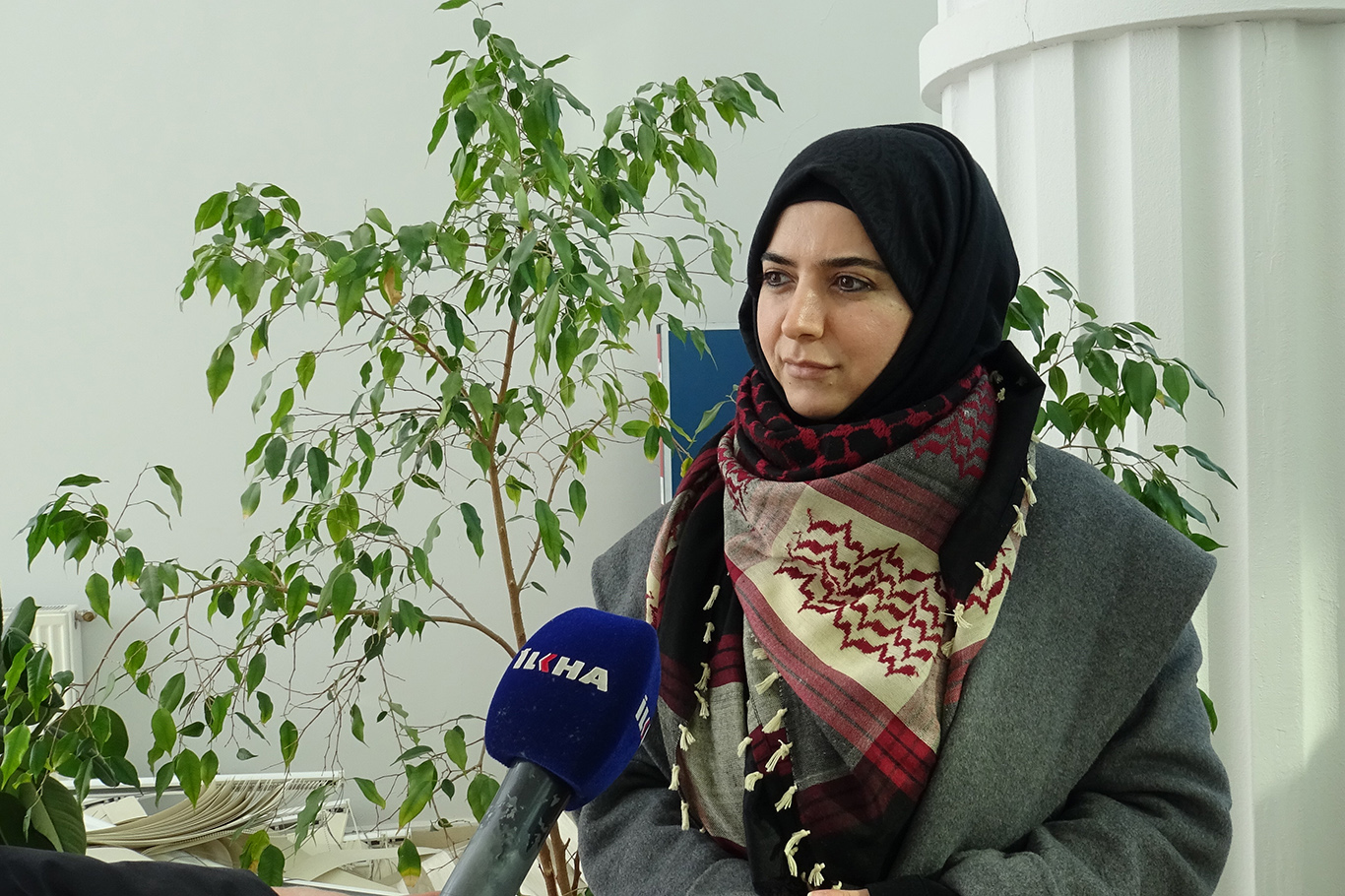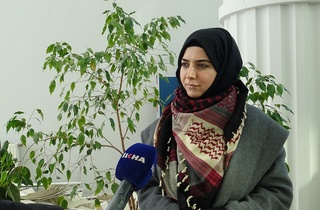In an exclusive interview with ILKHA, Dr. Salhiya shared profound insights into the life of Gazan women, their role in resistance, and the unique societal structure that has evolved under the shadow of the resistance.
Life with Purpose: Seeking Allah's Consent
Dr. Salhiya, who spent six months in Gaza during Operation Aqsa Flood, described the remarkable spiritual ethos of Gaza, where the conscious population views life as an opportunity to gain Allah’s consent. “When they lose their husbands or children, they do not see it as a loss but as a gain,” she said. “In Gaza, people live with one foot in this world and the other in the hereafter. Their lives are guided by a higher purpose, and the Qur'an is their ultimate guide.”
Women: The Backbone of Resistance
Salhiya emphasized the pivotal role of women in Gaza’s resistance, describing them as the backbone of a society that has endured countless tragedies. “Many Gazan women have lost their fathers, husbands, and children to the massacres of the occupying forces. Yet, they continue to rebuild their lives, raise their children as free and strong resistance fighters, and serve as symbols of resilience,” she said.
She highlighted how Gazan women face unimaginable challenges, such as burying their children with their own hands and living in tents after their homes are destroyed. Despite this, they persevere, driven by an unyielding sense of duty to their families and their faith.
A Culture Rooted in Faith
The children of Gaza grow up in an environment steeped in Islamic teachings, beginning their education at home and continuing it in masjids, schools, and universities. “Islamic education in Gaza progresses in parallel at every stage of life,” Salhiya explained. “The Qur'an serves as a catalogue and guide for them. Their lives reflect the values and responsibilities outlined in the Qur'an.”
Marriage: A Means to Strengthen Faith
Dr. Salhiya shed light on the simplicity and faith-centered nature of marriages in Gaza. “In Gaza, the biggest dowry for women is knowledge and decency,” she said. “There is no need for extravagant expenses because the aim is to gain Allah’s consent. Marriage is seen as a Sunnah of the Prophet Muhammad (Sallallahu Alayhi Wasallam) and a necessary institution to sustain the resistance.”
Gazan women choose life partners not for material wealth or physical beauty but for shared values and the ability to carry forward their cause. Even in the face of terrifying bombings, children find courage in their parents’ unwavering resolve, shouting ‘Allahu Akbar’ in the midst of chaos.
A Model of Strength for the World
According to Dr. Salhiya, the resilience and faith of Gazans serve as a powerful lesson for the world. “They do not mourn their losses as others might; instead, they see martyrdom as a profitable trade with Allah,” she remarked. “This steadfastness and clarity of purpose are what the world is learning from Gaza.”
Dr. Salhiya concluded her reflections with a powerful statement on the existential approach of Gazans to life and death. "You are killing death in Gaza. You live with one foot in this world and one foot in the hereafter," she said, encapsulating the spirit of a people who have transcended fear, embracing their fate with a sense of divine justice and hope.
Her insights offer a rare glimpse into the life, struggles, and enduring spirit of Gaza, challenging external perceptions with narratives of faith, resistance, and human dignity in the face of Israeli genocidal aggression. (ILKHA)




 Dünya
Dünya
 Dünya
Dünya
 Ekonomi
Ekonomi
 Dünya
Dünya
 Dünya
Dünya
 Güncel
Güncel
 Güncel
Güncel
 Güncel
Güncel
 Güncel
Güncel
 Dünya
Dünya





